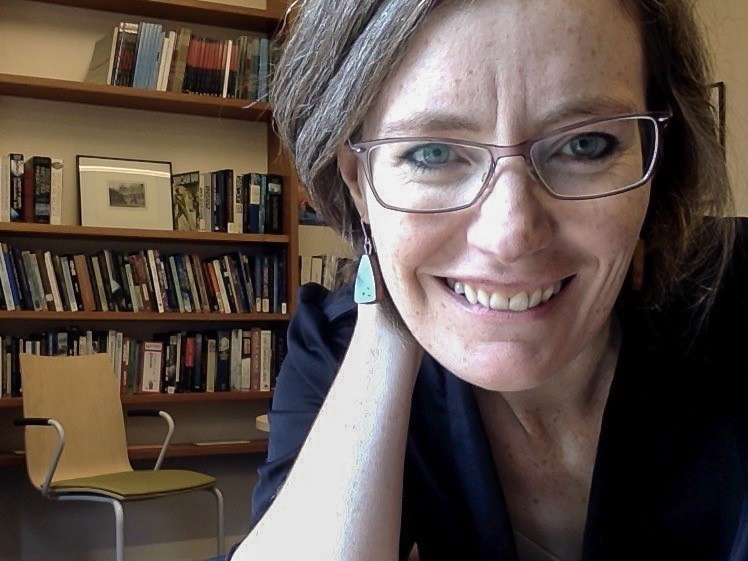We are thrilled to welcome five new brilliant researchers and teachers to Somerville as Tutorial Fellows in 2020.
In this new series of articles, we will be introducing them to our community through Q&As, profiles, and interviews, starting with our new Fellow in International Relations, Professor Patricia Owens.
Patricia Owens is Professor of International Relations and Director of the Leverhulme Research Project Women and the History of International Thought, having previously held posts at Harvard, Princeton, UCLA, UC-Berkeley, the University of Southern California, the University of Sydney and Oriel College here in Oxford.
Her most recent book, Economy of Force (Cambridge) won the 2016 Susan Strange Prize for the Best Book in international studies, the 2016 International Studies Association Theory Section Best Book Award, and was Runner up for the 2016 Francesco Guicciardini Prize for Best Book in Historical IR.
Patricia was co-editor of the European Journal of International Relations between 2013 and 2018. She is also co-editor of the leading undergraduate textbook in international relations, The Globalization of World Politics (Oxford, 2019). The book is now in its 7th edition and has been translated into Arabic, French, Korean, Polish, Greek, Turkish, Slovene, Hungarian and Macedonian.
What is your background and how did you start in your academic career?
I was born in London to a working-class Irish immigrant family, and I’m the first in my family to go to university. From the second year, I knew that wanted to be an academic. What could be better than being paid to read books, have opinions about them, discuss these with other people, and learn from them? I loved this aspect of university, and so I never really left.
What is your research area? What project are you working on at the moment?
My main research field is international history and theory. I’m currently directing a collaborative and interdisciplinary project on women and the history of international thought funded by the Leverhulme Trust. Personally, for me, one of the best things about this research is the collaboration and getting to work closely with historians. More information on the project can be found here.
What is the best thing about your job?
It’s definitely being able to combine teaching and research. There’s a lot of talk about “research-led” teaching, but I’ve had a wonderful experience of the reverse, teaching-led research. The main question of my second book, Economy of Force, came out of teaching about war. In class, we just couldn’t find a satisfactory answer to the question of what kind of governance or rule is counterinsurgency rule. So, I wrote a book with a new answer that question.
What has been your proudest moment?
If we’re focusing on work and leaving aside the constant feelings of pride in my two daughters, I’m probably most proud of Economy of Force winning the Susan Strange Prize for best book in international studies. This is especially given that the next project was on women and the history of international thought, including figures such as Susan Strange but also the many, many more that came before her.
What would you say to someone thinking about studying your subject at Oxford?
I would say, do it! You can take two different paths to international relations as an undergraduate at Oxford: through PPE and though History and Politics. Both are excellent routes to international relations and reflect the inherently interdisciplinary nature of this magnificent and essential subject.
What are you looking forward to about being at Somerville and Oxford?
It has been a very strange time to start a new position, and this will be the case for all us newcomers to Oxford in 2020, students, faculty, and professional services. Despite Covid-19 making everything more challenging, I’ve found people to be extremely warm and welcoming. So, I look forward meeting all my new students and colleagues face-to-face as soon as possible, whenever that may be…
